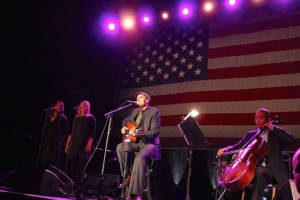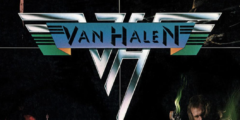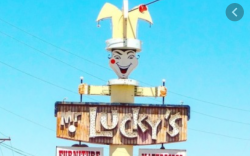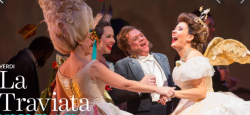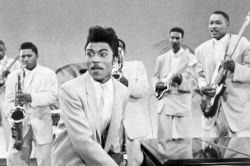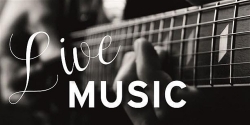On This Fourth of July, We Have to Sing
On this Fourth of July, I think of the Fifth of July in 1852. On that day, Frederick Douglass spoke in Rochester, New York, about the national celebration that took place the day before. He opened his remarks by looking backwards:
This, for the purpose of this celebration, is the 4th of July. It is the birthday of your National Independence, and of your political freedom. This, to you, is what the Passover was to the emancipated people of God. It carries your minds back to the day, and to the act of your great deliverance; and to the signs, and to the wonders, associated with that act that day.
He described that day long past, that act of great deliverance, and noted that things had changed in some serious ways:
To say now that America was right, and England wrong, is exceedingly easy. Everybody can say it; the dastard, not less than the noble brave, can flippantly discant on the tyranny of England towards the American Colonies. It is fashionable to do so; but there was a time when, to pronounce against England, and in favor of the cause of the colonies, tried men’s souls. They who did so were accounted in their day, plotters of mischief, agitators and rebels, dangerous men. To side with the right, against the wrong, with the weak against the strong, and with the oppressed against the oppressor! here lies the merit, and the one which, of all others, seems unfashionable in our day. The cause of liberty may be stabbed by the men who glory in the deeds of your fathers.
Oops. Words became easy by 1852, as they were twisted by those seeking to be oppressors themselves. To his hearers, this line had to have sounded like thunder in the distance, putting them on notice that a storm was brewing in Douglass’ words. But Douglass took his time getting to the storm, continuing to tell the stories of the days of the founders and their efforts to throw off the British yoke. Having taken his time, however, Douglass brought the storm.
The causes which led to the separation of the colonies from the British crown have never lacked for a tongue. They have all been taught in your common schools, narrated at your firesides, unfolded from your pulpits, and thundered from your legislative halls, and are as familiar to you as household words. They form the staple of your national poetry and eloquence. . . .
I leave, therefore, the great deeds of your fathers to other gentlemen whose claim to have been regularly descended will be less likely to be disputed than mine!
My business, if I have any here today, is with the present. The accepted time with God and his cause is the ever-living now. . . .
Fellow-citizens, pardon me, allow me to ask, why am I called upon to speak here today? What have I, or those I represent, to do with your national independence? Are the great principles of political freedom and of natural justice, embodied in that Declaration of Independence, extended to us? and am I, therefore, called upon to bring our humble offering to the national altar, and to confess the benefits and express devout gratitude for the blessings resulting from your independence to us? . . .
But, such is not the state of the case. I say it with a sad sense of the disparity between us. I am not included within the pale of this glorious anniversary! Your high independence only reveals the immeasurable distance between us. The blessings in which you, this day, rejoice, are not enjoyed in common.-The rich inheritance of justice, liberty, prosperity and independence, bequeathed by your fathers, is shared by you, not by me. The sunlight that brought life and healing to you, has brought stripes and death to me. This Fourth July is yours, not mine. You may rejoice, I must mourn. To drag a man in fetters into the grand illuminated temple of liberty, and call upon him to join you in joyous anthems, were inhuman mockery and sacrilegious irony.
And thus the thundering “BOOM” is no long sounding in the distance for Douglass’ hearers, but right there in their midst as Douglass spoke. There’s more, a lot more, to what Frederick Douglass had to say that day, and every word of it bears reading.
On this Fourth of July, I wonder what the Fifth of July, 2024, will bring.
Perhaps King Charles of Great Britain will be writing to Chief Justice Roberts about the words of his majority opinion in Trump v United States. I can imagine His Majesty politely asking Roberts when Great Britain will be getting its North American colonies back, since SCOTUS has now overturned the unfortunate, mistaken allegations about the long-ago acts of his royal predecessor, George III. If a mere president like Trump is entitled to absolute immunity when he or she uses official powers that are core to his or her office, surely the same extends to an actual king like his ancestor George III, the opinions of Thomas Jefferson et al. notwithstanding. It may have taken Ye Olde Colonies almost 250 years to overrule, void, and repudiate the Declaration of Independence, but I’m sure King Charles would be gracious and let bygones be bygones.
On this Fourth of July, on a more serious note, I think of the musician Paul Simon. In late 1968, his musical partner Art Garfunkel suggested that Simon listen to a musical tune he had come across. It was centuries old, with German lyrics, but it was the music that grabbed Simon. They were looking to craft a Christmas album, but not using the usual Christmas classics. Simon was captured by the music, but was not able to come up suitable lyrics to fit a Christmas album.
It was the “Christmas” part that was the problem. As Simon said about his songwriting process,
I spend more time writing music than writing words. The music always precedes the words. The words often come from the sound of the music and eventually evolve into coherent thoughts. Or incoherent thoughts. Rhythm plays a crucial part in the lyric-making as well. It’s like a puzzle to find the right words to express what the music is saying.
The music that Garfunkel played for Simon was a part of Bach’s St. Matthew’s Passion that became the stand-alone hymn “O Sacred Head, Now Wounded.” Even without the words, Bach’s music has the feel of conflict, betrayal, and death. Bach’s music was not the music of Christmas, but Lent. But even though he couldn’t make the tune work for that Christmas album (that never got made), Simon didn’t forget that music, and he finally found the right words to express what the music was saying.
Many’s the time I’ve been mistaken
And many times confused
Yes, and I’ve often felt forsaken
And certainly misused
Oh, but I’m all right, I’m all right
I’m just weary to my bones
Still, you don’t expect to be bright and bon vivant
So far away from home
So far away from home
In the wake of the assassinations of Martin Luther King Jr. and Robert F. Kennedy, as the Vietnam War continued to spew destruction and death in ever-larger measure, and as Richard Nixon was elected president, Simon mourned for his country. He knew the pain of national mistakes, the fog of confusion over the nation’s founding story, and the forsakenness of separation from what that long-ago Fourth of July promised. And he and his nation were, above all, weary.
And yet.
And yet, the mistakes, the confusion, the forsakenness, and the weariness were not the end of the song. Skipping past the second verse and the bridge, Simon ends “American Tune” like this:
For we come on the ship they call the Mayflower
We come on the ship that sailed the moon
We come in the age’s most uncertain hour
And sing an American tune
But it’s all right, it’s all right, all right
You can’t be forever blessed
Still, tomorrow’s going to be another working day
And I’m trying to get some rest
That’s all I’m trying to get some rest
I’ve heard Simon’s version of this song hundreds of times, and also versions sung by all kinds of others. Two of the covers I like the best are those of Willie Nelson and Allen Toussaint. (Toussaint recorded it for his last album, which was released after his death.) In both Nelson’s country twang and Toussaint’s jazz/blues vocalizations, each voice resonates with the knowledge of mistakes, confusion, and forsakenness, and both also sing with the knowledge that despite the weariness, the work continues.
On this Fourth of July, I know that tomorrow — the Fifth of July — is another working day for this nation. As Frederick Douglass knew, it is a day to repair the mistakes, dispel the confusion, and welcome those who feel forsaken.
Allow me to say, in conclusion, notwithstanding the dark picture I have this day presented, of the state of the nation, I do not despair of this country. There are forces in operation, which must inevitably, work the downfall of slavery. “The arm of the Lord is not shortened,” and the doom of slavery is certain.
I, therefore, leave off where I began, with hope. While drawing encouragement from “the Declaration of Independence,” the great principles it contains, and the genius of American Institutions, my spirit is also cheered by the obvious tendencies of the age. Nations do not now stand in the same relation to each other that they did ages ago. No nation can now shut itself up, from the surrounding world, and trot round in the same old path of its fathers without interference. The time was when such could be done. Long established customs of hurtful character could formerly fence themselves in, and do their evil work with social impunity. Knowledge was then confined and enjoyed by the privileged few, and the multitude walked on in mental darkness. But a change has now come over the affairs of mankind. Walled cities and empires have become unfashionable. The arm of commerce has borne away the gates of the strong city. Intelligence is penetrating the darkest corners of the globe. It makes its pathway over and under the sea, as well as on the earth. Wind, steam, and lightning are its chartered agents. Oceans no longer divide, but link nations together. From Boston to London is now a holiday excursion. Space is comparatively annihilated.-Thoughts expressed on one side of the Atlantic, are distinctly heard on the other. . . .
No abuse, no outrage whether in taste, sport or avarice, can now hide itself from the all-pervading light.
The Fourth of July is a day of rest, my friends, because the Fifth of July is a day of work.
And we’ve got a lot of work to do.

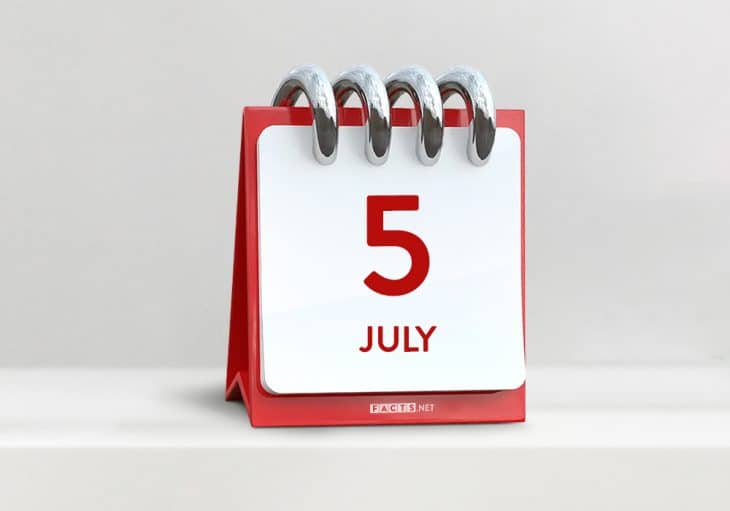



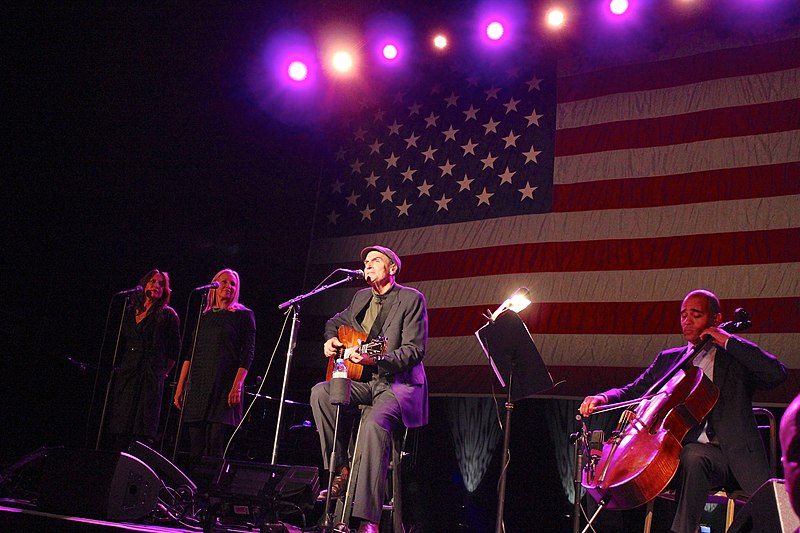 CC BY 2.0
CC BY 2.0